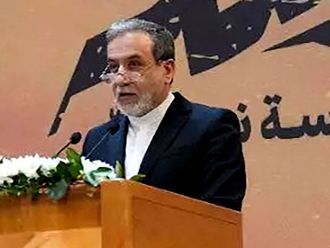Amman: Schools across Jordan were empty on Sunday as teachers held a nation-wide strike over fuel prices while the prime minister defended his decision to increases prices of subsidised fuel.
Sunday marks the fifth straight day of nation-wide protests over a government decision to cut subsidies, which led to a 33 per cent rise in diesel prices and a doubling in cooking and heating gas.
The first 72 hours of protests saw widespread violence and rioting that led to some 200 arrests, over 70 injuries and the death of one citizen.
An official said the military prosecutor has charged 89 activists with inciting violent protests. He said 158 men in their 20s and 30s were arrested during riots that began on Tuesday that left one person dead and 75 others, including 58 policemen, injured.
While 30 have been released for lack of evidence, the remaining 39 are still being questioned, he said. The 89 who have been charged face up to 15 years in jail.
Thousands of public and private schools were forced to shut on Sunday after the Jordan Teacher’s Association launched a general strike.
Some 80 per cent of schools were affected by the strike, according to the association. Association president Mustafa Rawasheh said the strike aims to send a message to Amman that the decision “affects all aspects of life in Jordan”.
Prime Minister Abdullah Ensour said shaky state finances forced him to hike prices for heating and cooking gas by 54 per cent, and some oil derivatives by up to 28 per cent. “It’s a sound move meant to save the Jordanian economy from further deterioration,” he told reporters.
He said that when he took office last month, he found that foreign currency reserves this year had shrunk by half to $10 billion (Dh36.72 billion), while unemployment and poverty stood at alarming levels.
“Economic indicators were alarming, the situation was dangerous and there were projections that it would be impossible to navigate the ship in safe waters,” he said.












